The strategy for the Alpine area: EUSALP
The Cluster manager Eng. Cristina De Capitani has been given the role of “expert” by the Lombardy Region and Finlombarda regarding the topic “Health and Tourism” within the EU Macro-regional Strategy for the Alpine Region – EUSALP.
What is a Macroregional strategy?
A ‘Macroregional strategy’ is an integrated framework endorsed by the European Council, which may be supported by the European Structural and Investment Funds among others, to address common challenges faced by a defined geographical area relating to Member States and third countries located in the same geographical area which thereby benefit from strengthened cooperation contributing to achievement of economic, social and territorial cohesion.
Why a Macroregional Strategy for the Alpine area?
The Alpine area is composed of territories with contrasted demographic, social and economic trends and a great cultural and linguistic diversity. This diversity goes along with a great variety of governance systems and traditions. Both the common specificities of the Alpine area and its variety and diversity call for cooperation.
The Alpine region represents a living and working space for the resident population and an attractive tourist destination for millions of guests every year. The Alps are the water tower of Europe and are known all over the world for their natural beauty, varied landscapes, rich biodiversity and cultural heritage.
The Alpine region is a unique territory, which has an important potential for dynamism, but is facing major challenges, such as:
- economic globalization that requires the territory to distinguish itself as competitive and innovative by developing the knowledge and information society
- demographic trends, characterized particularly by the combined effects of ageing and new migration models
- climate change and its foreseeable effects on the environment, biodiversity and on the living conditions of its inhabitants
- the energy challenge at the European and worldwide scales, which consists of managing and meeting demand sustainably, securely and affordably
- its specific geographical position in Europe, as a transit region but also as an area with unique geographical and natural features which set the frame for all future developments
An Alpine macro-regional strategy would provide an opportunity to improve cross-border cooperation in the Alpine States as well as identifying common goals and implementing them more effectively through transnational collaboration. Better cooperation between the regions and States is needed to tackle those challenges.
ACTION GROUP 2
The main objectives of Action Group 2 are:
- To develop new value chains with enterprises from different sectors
- To bridge the gap between different policies and efforts in order to stimulate the transformation of the industrial structure and drive job creation and growth
- To make better use of cluster initiatives
- To bridge the gap between disconnected value chains
- To facilitate and encourage the development and implementation of concrete projects in these strategic sectors in the Alpine Region.
So far Action Group 2 has identified three thematic priorities (Sub-Groups):
- Bioeconomy (coordinated by Baden-Württemberg, DE)
- Wood from Alpine Region (coordinated by Auvergne-Rhône-Alpes, FR)
- Health Tourism (coordinated by the Region of Salzburg, AT)


